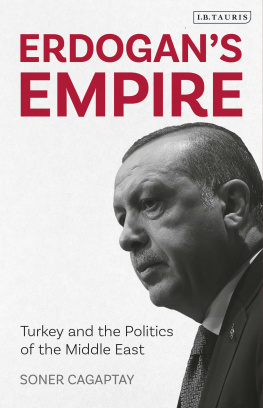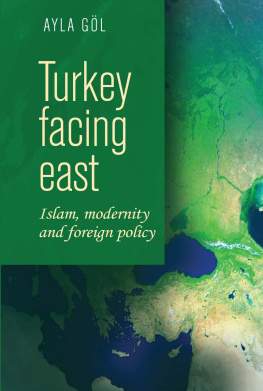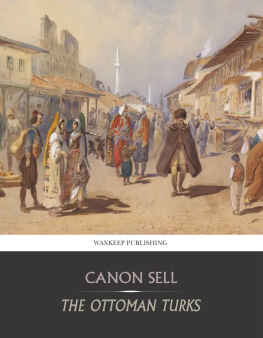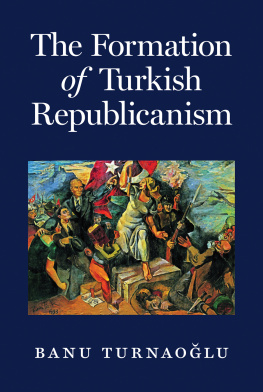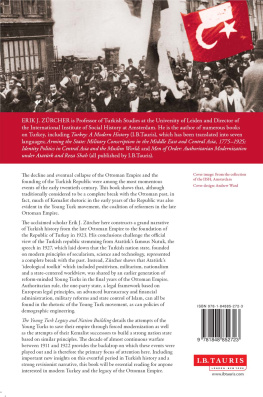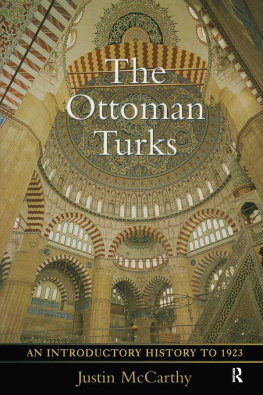Husrev Tabak is currently Assistant Professor in the Department of International Relations at Recep Tayyip Erdogan University, Rize, Turkey. He completed his PhD in Politics at the University of Manchester and his MA in Politics and Sociology at University College London. His publications include Islam, Nationalism and Kurdish Ethnopolitics in Turkey in the Peace Review, Methodological Nationalism and the Study of Foreign Policy in Turkey in Uluslararas likiler (International Relations), and Manifestations of Islam in Turkey's Foreign Policy in Turkey: Opportunities and Challenges.
This book presents an excellent account of the changing relationship between Ankara and the Kosovar Turks. Skilfully deploying international norm theory, it traces out how the former's shift towards what has been called post-Kemalist policy frameworks has been internalised and resisted by Kosovo's Turkish-speaking community. In doing so, it offers a series of insightful findings on the ideational consequences of Turkey's contemporary foreign policy. It is therefore a key resource for anyone interested in both Turkey's relations with its kin communities in the Balkans and the over-arching role of norms in international relations.
Tim Jacoby, Professor, University of Manchester
Turkish internal and external politics has been drawing an ever increasing amount of scholarly attention, yet there are still few studies shedding light on the links between domestic and foreign policy. Stemming from the National Outlook (Milli Gr) movement, the JDP has been trying to create a new set of religiously, culturally and historically inspired norms within internal politics, orienting its selective democratisation course towards these new norms. Husrev Tabak's book provides an original academic framework, showing how new cultural and religious norms have impacted on Ankara's treatment of the Turkish community in Kosovo. So far, the topic of Outside Turks has been understudied. This book examines Outside Turks in terms of the interconnections between internal and external politics. The comprehensive fieldwork makes it a reference book for scholars who work on the nexus between domestic and foreign policy, Turkish foreign policy, minorities in the Balkans and the JDP's understanding of values and norms. It is also highly recommended for all those who would like to gain an in-depth view of Turkey's Outside Turks policies and how they have been changing in the recent decades.
Birgl Demirta, Professor, TOBB University of Economics and Technology, Turkey
THE KOSOVAR
TURKS AND
POST-KEMALIST
TURKEY
Foreign Policy, Socialisation and Resistance
H USREV T ABAK
Published in 2017 by
I.B.Tauris & Co. Ltd
London New York
www.ibtauris.com
Copyright 2017 Husrev Tabak
The right of Husrev Tabak to be identified as the author of this work has been asserted by the author in accordance with the Copyright, Designs and Patents Act 1988.
All rights reserved. Except for brief quotations in a review, this book, or any part thereof, may not be reproduced, stored in or introduced into a retrieval system, or transmitted, in any form or by any means, electronic, mechanical, photocopying, recording or otherwise, without the prior written permission of the publisher.
Every attempt has been made to gain permission for the use of the images in this book. Any omissions will be rectified in future editions.
References to websites were correct at the time of writing.
Library of Modern Turkey 26
ISBN: 978 1 78453 737 1
eISBN: 978 1 78672 055 9
ePDF: 978 1 78673 055 8
A full CIP record for this book is available from the British Library
A full CIP record is available from the Library of Congress
Library of Congress Catalog Card Number: available
To mmhan, ersin mirza and aye mira
LIST OF ILLUSTRATIONS
Figures
The norm's life cycle mode
A foreign policy framework for analysing overseas implications of domestic norms
Appendix Figures
Atatrk Commemoration Week and Teachers' Day poetry and painting contest
The cover photo of a video CD prepared by the Turkish Tabur
The poster of the 2009 Atatrk Commemoration Week
Miscellaneous photos from the 2009 Atatrk Commemoration Week Events
Miscellaneous photos from the 2009 Atatrk Commemoration Week Events
The cover of the 2011 Atatrk Commemoration Week booklet
The invitation card to the ethnic Turkish community?s National Day celebration, 2013
19 May Festival organised by the Democratic Turkish Party of Kosovo and local associations
Table
Teachings of the post-Kemalist norms concerning Outside Turks
LIST OF ABBREVIATIONS
| ADD | Kemalist Thought Association |
| AKEA | Association for Culture, Education and School |
| CUP | Committee of Union and Progress |
| D-8 | Developing 8 |
| DIYANET | Presidency for Religious Affairs |
| DM | Diplomatic mission member respondents |
| EULEX | European Union Rule of Law Mission |
| FPA | Foreign Policy Analysis |
| HDP | Peoples' Democratic Party |
| HDA-PAR | Kurdish Free Cause Party |
| IHH | Humanitarian Relief Foundation |
| IP | International Politics |
| IR | International Relations |
| JDP | Justice and Development Party |
| KDTP | Democratic Turkish Party of Kosovo |
| KFOR | Kosovo Force |
| KKTC | Turkish Republic of North Cyprus |
| LE | Local elite respondents |
| MABED | Mamusha Research, Science and Education Association |
| NATO | North Atlantic Treaty Organisation |
| NGO | Non-Governmental Organisation |
| NMP | Nationalist Movement Party |
| OIC | Organization of Islamic Cooperation |
| PKK | Kurdistan Workers' Party |
| PM | Prime Minister |
| RPP | Republican People Party |
| SVN | Scoping visit notes |
| TC | Republic of Turkey |
| TDK | Turkish Language Council in Turkey |
| TDP | Turkish Democratic Party |
| TIKA | Turkish Cooperation and Coordination Agency |
| TRT | Turkish Radio and Television Corporation |
| TMED | Turkey Alumni Association |
| UNMIK | United Nations interim administration |
| WP | Welfare Party |
| WWI | World War I |
| WWII | World War II |
| YTB | Presidency for Turks Abroad and Related Communities |
ACKNOWLEDGEMENTS
This is the first book in the English language exclusively devoted to the study of the ethnic Turkish community in Kosovo. I would therefore like to thank several members of this community who have kindly taken part in my research and shared their knowledge and rich personal archives. Among them, Bayram Pomak deserves the most gratitude. I am indebted to him for acting as my main point of contact with the community and for guiding me throughout my fieldwork in Kosovo. Along with him, Bedrettin Koro, Mehmet Bt and Ferhat Dervi humbly and generously shared their experiences, thoughts and personal archives. Mehmet Bt, the owner of the now closed



